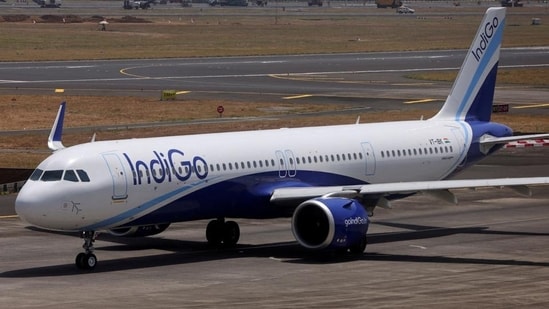IndiGo, the country’s largest carrier by fleet and market share, announced the withdrawal of fuel charge effective January 04, 2024. The airline has now increased the seat-selection charges, increasing its ancillary charges for seat selection. The move has resulted in some of the seats getting priced at ₹2000 with immediate effect. The charges had started reflecting on its booking engine late last week and have been updated on its website today.

IndiGo brands some of its seats as “XL”, these seats come with extra legroom or in case of the first row seats, ease in terms of deplaning early. However, there is no change in service for these seats. In case of 180 or 186 seats in the A320/A320neo aircraft – which form the majority of its fleet, there are 18 seats which are sold as XL seats. Not all XL seats are sold at ₹2000, with the rates varying between ₹1400 to ₹2000.
The prices which ranged from 150 to 1500 have been revised and now range from ₹150 to ₹2000, an increase of 33% at the upper end. There continues to be free seats available for booking, which typically have been the ones in the middle towards the rear of the aircraft. The increase is not uniform as there are cases of prices being dropped in some cases. There has not been any change in case of seat selection of flights operated by the ATR 72-600, over 40 of which are with the airline.
Click to check IndiGO’s fees and charges
For rows 2 and 3 on the Airbus fleet, the seat selection charges have gone down from ₹450 to ₹400. On the A320s which form the majority of its fleet, the charges for row 11 and 14 to 20 have gone up from ₹250 for an aisle or window seat to ₹400, even for middle seats which were earlier available for ₹150.
IndiGo reported an ancillary revenue of ₹1551 crores in the last quarter. This includes seat selection, meal selection as well as other combinations, which are available for sale.
Also read: IndiGo becomes first Indian airline to carry 100 million passengers in a year
Will competition join or make the most of it?
IndiGo enjoys a market share of 60% in India and a large set of monopoly or near monopoly routes leaving passengers without choice. While the monopoly routes have seen lesser discounting and prices which are higher, the Indian market is price sensitive and even with monopoly, it has not been able to price exorbitantly.
With the Air India group becoming aggressive, largely led by Air India Express, the question now shifts to if the competition will increase the seat selection prices or will it attract passengers by using this difference as a marketing tool. The pricing power comes from a large and dense network along with corporate deals, neither of which is currently in favour of rivals like Air India Express, SpiceJet or Akasa Air.
Akasa Air’s charges vary from ₹150 to ₹1500, with first row and emergency row being marketed as “A+”. The airline also has a few aircraft which were destined for Jet Airways and has a business class cabin, where the 2×2 seating is sold at ₹3500 per seat. Air India Express also has its seat selection charges on similar lines, with the MAX being inducted in dual class – similar to Akasa Air but operated as mono class.
Also read: ‘Jai Shri Ram’: IndiGo pilot welcomes passengers as 1st flight to new Ayodhya airport takes off. Watch
Seating together a challenge
The airline continues to offer free seat selection with auto seat selection option at web check-in. The web check-in has been made non mandatory as per the airline after a recent hue and cry.
This creates a challenge for families with children travelling together and is often the scene of requests at either check-in or post boarding, so that a family can be seated together. In the west where seat selection fees came into existence before India, the family with children being split at seat assignment has been a long discussed and debated problem and a handful of airlines like United, Frontier and JetBlue have publicly stated that they are committed to ensuring that a family with children booked on the same PNR get seating next to each other.
The clamour for such a change in India will only grow louder as more and more families travel by air.
Tail Note
The government has not been keen to intervene in the matter as the charges do not violate the Civil Aviation Regulations (CAR) which allows charges for seat selection but does not have a cap on the fees. With oil prices going down, the airline has withdrawn the additional fuel charge which was applied. The potential loss of revenue is being recovered by adding seat selection is how it looks like as of now.
The airline had earlier increased prices of its food offerings, while curtailing the offerings – months after launching a new menu. Neither of the changes have impacted its earnings, profitability or passenger numbers as it continues to climb to new highs and will close 2023 with over 60% market share – a first for the airline.
The write is an aviation analyst